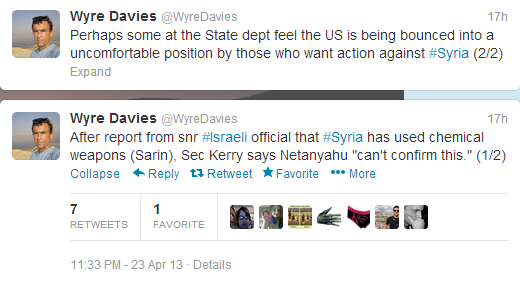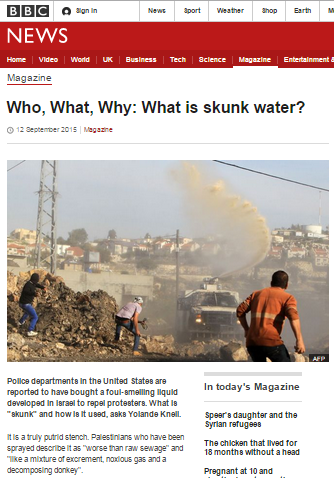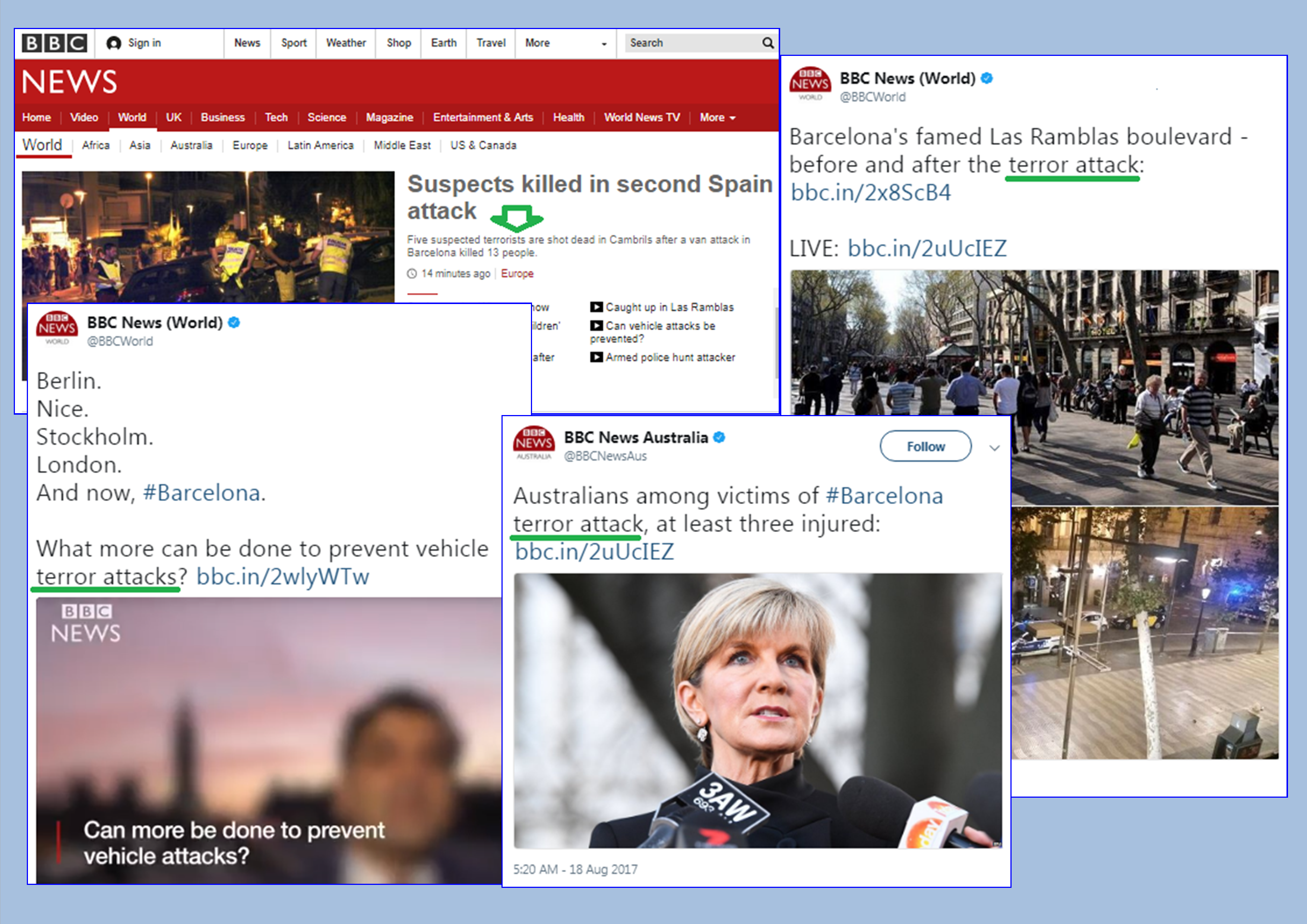As extreme weather conditions prevailed across the Middle East this last weekend, the BBC News website produced two items on the subject of flooding in the Gaza Strip. A written report titled “Floods from storm Alexa force Gazans to leave homes” appeared on the website’s Middle East and main pages and a filmed report by Yolande Knell – which was shown on BBC television news programmes – was also featured on the Middle East page of the website.
In the filmed report Knell informs BBC audiences that:
“Many homes in the coastal strip are poorly built and it lacks basic infrastructure. Israel and Egypt impose tight border restrictions on Gaza. Since last month its one power plant has been shut down after cheap fuel supplies from Egypt were cut.”
Knell makes no attempt to inform viewers why “border restrictions” are necessary, scrupulously avoiding any mention of the important context of terrorism. She also neglects to inform audiences of the reasons behind Gaza’s electricity crisis: once again it is presented it in vague terms which do nothing to explain the dispute between Hamas and the Palestinian Authority which brought about the crisis.
Both the above reports were produced late on Saturday night – December 14th. That fact is relevant because over twenty-four hours beforehand, Israel began facilitating the supply of water pumps and fuel to help ease the situation in the Gaza Strip.
“Also, following discussions between COGAT and the International aid agencies operating in Gaza, the transfer of humanitarian aid into the Gaza Strip through the Kerem Shalom crossing will continue tomorrow. This includes 1.2 million liters of gas: 800,000 liters of diesel fuel for transportation, and 400,000 liters of diesel fuel for the Gaza power station, and another 200 tons of household gas. “
So, whilst Knell does not forget to insert the standard mention of “tight border restrictions” into her report, she completely ignores the aid efforts which crossed that border (specially opened for the purpose over the weekend), thus compromising both the accuracy and impartiality of her reporting.
Neither is Knell any more accurate on Israel, inventing an imaginary “travel ban”:
“The Israeli authorities eased a travel ban for the Jewish Sabbath to run trains to Tel Aviv after many roads became blocked.”
One would think that Knell had been in Israel long enough to know that whilst public transport does not run on Shabbat in most areas in Israel, there is no such thing as an overall “travel ban for the Jewish Sabbath” imposed by “Israeli authorities” as her sloppy reporting implies.











